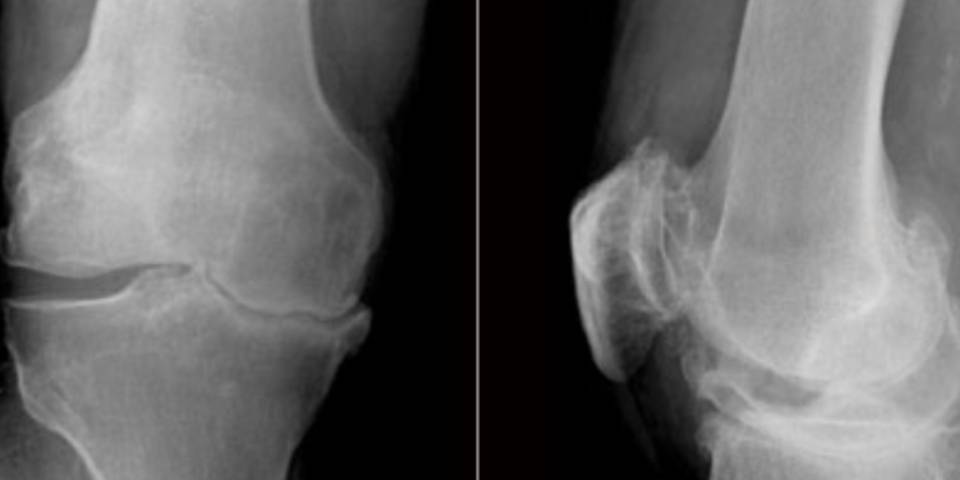
- 13/01/2021
- Dr. Ashwini Gaurav
- 0 Comments
- Uncategorized
Osteoarthritis – Is it just a degenerative process?
By far Osteoarthritis, is the most common joint disorder worldwide. It is truly universal condition, affecting both sexes and all races. Evidences suggest that prevalence rises from 1 per cent below the age of 30 years to over 50 per cent in people above the age of 60.
It is most obvious that Osteoarthritis increases with age, so is it simply an expression of senescence? No, it occurs with significant frequency in certain joints and certain areas of a particular joint, while all the other joints are commonly spared. Joints such as Hip, Knee, Base of thumb and Spine are more frequently involved than others, with Knee joint being the commonest.
Age, obesity, occupation, bone density and family history are the genuine risk factors.
Symptoms
Pain is the usual complaint, starting around middle age of 45-50 years. It starts slowly and progresses over the next few years, ultimately becomes very disturbing over the next 5-8 years. It is usually on walking or stairs, but becomes constant later in life.
- Swelling is associated with pain episodes and may be intermittent or continuous.
- Stiffness is common and usually after periods of inactivity.
- Deformity occurs with progressive bowing of knees inside or outside.
- All these symptoms are present intermittent initially (symptom free periods) but become persistent later in life.
- A simple radiological evaluation by X rays are enough to diagnose the condition. Your orthopaedician may ask you for special “Osteoarthritis profile X rays” in various position.
- Rarely advanced investigation such as CT scans or MRI scans are required to locate any associated abnormality.
Treatment
Osteoarthritis treatment requires a holistic approach to the person. It can be distributed in following parts:
- PHYSICAL THERAPY: This is the mainstay of treatment in early cases and is focused towards maintaining the freedom of movement of joint as well as muscle strengthening. Exercises and Heat therapy by a trained Physiotherapist is very useful. Also person can take up swimming, aerobics, yoga and flat surface walks.High impact activities such as jogging, running etc should be strictly avoided. Also avoid using stairs unnecessarily, squatting is prohibited and should use a sitting commode in the toilet. Massage and application of warmth is also very helpful and should be followed. With knee Osteoarthritis, “Use it or Loose it” is the dictum!!
- LOAD REDUCTION MEASURES: Weight reduction programmes are very helpful in reducing pain. A reduction in 10% of body weight may cause a reduction of 50% in knee pain. Shock absorbing sports shoes and use of walking sticks also help in offloading the knee joint with help in pain relief.
- MEDICINES:Pain Killers – Pain relief is very important to break the “Pain ⇄ Inactivity” cycle. A short course of painkillers is necessary to get the person up and going, but they should not be continued for long and are to be taken in as and when required manner later.Osteoarthritis medicines – There are a variety of medicines available and can be tried after discussing their benefits with the doctor.
- INJECTIONS: 3 types are injections are given inside the joint to relieve the pain for few months:
- Steroid Injections – They provide good pain relief and reduce the inflammation, but should be avoided in diabetic persons
- Hyaluronic acid injections – These are synthetic form of the natural lubricating fluid of the joint and also relieve the joint of pain by providing smoother function.
- Platelet Rich Plasma (PRP) Injections – These are naturally derived substances from the person’s own blood. They are not available commercially and have to be prepared in the lab. This PRP relieves pain by reducing inflammation and also repairing minimal damages in the soft bone of the joint, as this is made out of the person’s own blood so has no side effects of its own.
All these injections are helpful in “Early Osteoarthritis” only and should be discussed with your doctor.
- SURGERY: As such surgery should be the last resort after all treatment has failed to provide relief from pain and stiffness.
- Washout Surgeries – These are keyhole (Arthroscopic) surgeries done to clean the joint of loose bones and other material, and may provide a temporary relief in symptoms.
- Realignment surgeries – These are done when the arthritis is limited to only a specific part of the joint and other parts are normal. They are called “Osteotomy” procedures.
- Joint Replacement Surgeries- In this, the diseased part of the bone is removed and is replaced with a high quality, long lasting metallic artificial joint. Modern day Total Knee Replacement & Total Hip Replacement’s last long upto 20 years or maybe more, which also depends upon many patient’s and surgeon’s factors. The pain is relieved, the function of the joint improves and the independence of the person increases. This is a very safe surgery done in controlled environment to provide maximal benefit to the person.

All the surgeries have their benefits and limitations, which should be discussed with your orthopaedic surgeon before proceeding. Please do post your queries and I would love to answer back.

